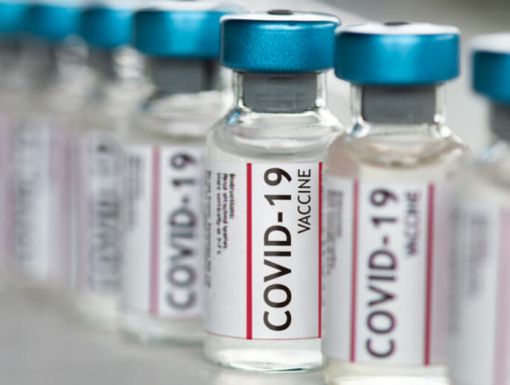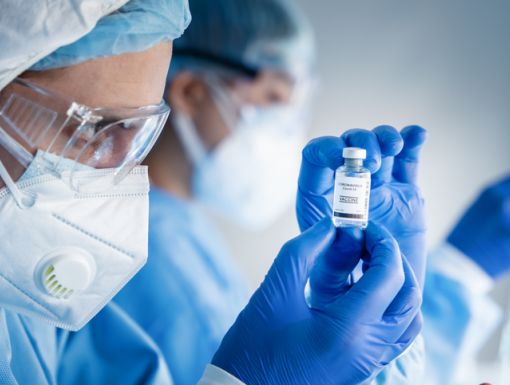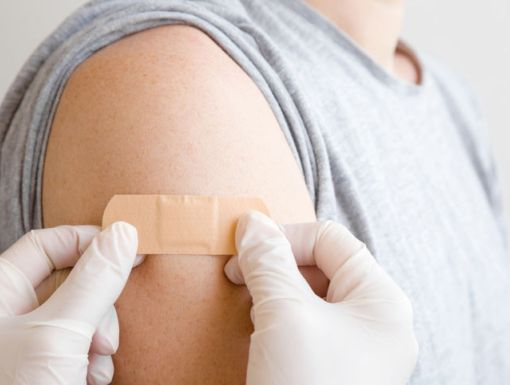
COVID-19 Vaccine: Fact Vs. Myth
With different reports coming out every day on the COVID-19 vaccines, it is easy to be confused by myths and false information. Below, we go through 10 of the most common myths surrounding the COVID-19 vaccines.
1. Myth: The vaccine is not safe because it was approved so quickly.
Fact: During a public health emergency, an EUA authorizes the FDA to make a product available to diagnose, treat or prevent serious or life-threatening diseases. The FDA and the U.S. Department of Health and Human Services have assured the public that no safety or efficacy evaluation steps would be skipped in approving the vaccine
COVID-19 vaccines were evaluated in tens of thousands of participants in clinical trials, and according to the CDC, as of the end of July, over 342 million doses of COVID-19 vaccine have been given in the United States since they were authorized for emergency use by FDA under the most intense safety monitoring in U.S. history. To date, the systems in place to monitor the safety of these vaccines have found only two serious types of health problems after vaccination, both of which are rare. The CDC urges all persons to get the vaccine. COVID-19 vaccines are found to be safe and effective and the benefits of vaccination greatly outweigh the risks of not being immunized.
2. Myth: The vaccine will make me sick with COVID-19.
Fact: None of the approved COVID-19 vaccines contain the live virus that causes COVID-19. Therefore, the vaccine cannot cause you to become sick with COVID-19. Once you receive the vaccine, your body’s immune system will create an attack plan against the virus by producing antibodies. This also serves as an immune memory path, which means your body learns how to defeat the virus should you encounter COVID-19 again. You might feel sore in the arm where you received the vaccine. The most common side effects reported by vaccine participants in trials conducted by Pfizer and Moderna include:
- Headache
- Fatigue
- Muscle or joint pain
- Chills
- Mild fever
- Arm soreness
Some patients may still become infected or develop symptoms following vaccination against COVID-19. However, all COVID-19 vaccines currently available in the United States have demonstrated that your risk of a severe infection that requires you to be hospitalized is greatly reduced following immunization. This includes infections from variants like the Delta variant.
3. Myth: After getting the vaccine, I will test positive for COVID-19.
Fact: The vaccine cannot cause you to test positive via nasal swab or saliva test. This is not a live vaccine and will not cause you to shed virus.
Some patients may still become infected or develop symptoms following vaccination against COVID-19. However, the current vaccines have demonstrated that your risk of a severe infection that requires you to be hospitalized is greatly reduced following immunization.
4. Myth: The COVID-19 vaccine will alter my DNA.
Fact: Both the Pfizer and Moderna vaccine contain a synthetic mRNA or messenger RNA (ribonucleic acid). Messenger RNAs is a type of RNA that is found in our cells. The mRNA’s genetic information is what is being used to make the SARS-COV-2 spike protein. This is the “spike” that comes out of the virus. The spike protein is also what attaches itself to the human cells. Once this spike protein is created, it will alert the body’s immune system to make antibodies to fight the virus should a person encounter COVID-19. It’s important to note that the spike protein does not cause COVID-19 but merely an alert for the body to produce antibodies.
Many people worry that an mRNA will change their DNA because they seem similar. But mRNA vaccines are not infectious, meaning they don’t use a live strain of the virus. They don’t enter the human cell’s nucleus, so it can’t be inserted into a person’s DNA. The mRNA rapidly breaks down within the first couple of days, so it does not remain in the body.
5. Myth: The COVID-19 vaccine can cause severe side-effect, including allergic reactions.
For most patients in the vaccine trials, they experienced side-effects that are typical with most vaccines, including muscle aches, headache, arm soreness and fever. In a few extremely rare cases, people can have a severe reaction to ingredients used in a vaccine. It is recommended that patients with a history of severe allergic reactions should consult their physician before getting the vaccine
COVID-19 vaccination may not be for everyone. If you are unsure if you should receive the COVID-19 vaccine, please call your healthcare provider to discuss the possible benefits and risks.
6. Myth: The vaccine can cause infertility.
The claim circulating on social media that the COVID-19 vaccine causes female infertility is FALSE and is not supported by any research. Following guidelines from the FDA, no one is excluded from receiving the vaccine, even patients who are pregnant or breastfeeding, as there are no medical contraindications to receiving this vaccine. Pregnant patients should discuss with their physician individual risk factors to make an informed decision about possible vaccinations. Current data from COVID-19 vaccine trials supports the safety and efficacy of these vaccines, and the benefits of vaccination greatly outweigh the risks of not being immunized. You may review this advice from the Society for Maternal Fetal Medicine for those pregnant or breastfeeding.
7. Myth: I already had COVID-19, so I don’t need the vaccine.
Fact: If you have already had COVID-19 and recovered, you should still get vaccinated. There is not enough information currently available to say how long after infection someone is protected from getting COVID-19 again. In order to stop this pandemic, we need to use every tool available, which includes the immunization, social distancing, proper hand hygiene and wearing masks. Additionally, as variants of COVID-19 continue to emerge in our communities, it has never been more important for people to get vaccinated, not only to stop the spread of current strains, but to also help prevent more mutations and new strains from developing. The serious risks of COVID-19 – even for young, healthy people – outweigh the risks of any possible serious side effects from the vaccine.
8. Myth: After I get the vaccine, I can stop wearing my mask and social distancing.
Fact: Remember, it takes time for your body to build protection after any vaccination. COVID-19 vaccines that require two shots may not protect you until at least a week after your second shot. It’s important for everyone to continue using all the tools available to help stop this pandemic as we learn more about how COVID-19 vaccines work in real-world conditions.
On July 27, the CDC updated their guidelines, and recommends even vaccinated individuals wear a mask indoors in public if you are in an area of substantial or high transmission to maximize protection from the Delta variant. Wearing a mask is very important even for those that are vaccinated if you have a weakened immune system or if, because of your age or an underlying medical condition, you are at increased risk for severe disease, or if someone in your household has a weakened immune system, is at increased risk for severe disease, or is unvaccinated.
Until we reach herd immunity and the majority of the United States has been vaccinated, we will need to continue to practice social distancing, handwashing and wearing masks. These are the best ways to reduce your chance of being exposed to or spreading the virus until we end this pandemic.
9. Myth: The COVID-19 vaccines contain fetal tissue.
Fact: This is FALSE. Neither the Pfizer nor the Moderna vaccine contain cells that come from fetal tissue taken from the body of an aborted baby at any stage of design, development or production.
10. Myth: I will be injected with a microchip if I get the COVID-19 vaccine
Fact: This is FALSE. None of the COVID-19 vaccines developed have a "microchip" to track people or gather personal information into a database. This myth came about after Bill Gates mentioned a digital certificate of vaccine records. This technology is not tied to the development, testing or distribution of the COVID-19 vaccine.
.
Learn more about the COVID-19 vaccine: ochsner.org/vaccineinfo
Editor's note: This blog was originally posted on Jan. 13 2021, and has since been updated.
The information in this blog post is accurate at the time of publication. However, as the situation surrounding COVID-19 continues to change, it's possible that information has changed since being published. While Ochsner Health is trying to keep our blog posts as up to date as possible, we also encourage readers to stay informed on news and recommendations by using the CDC website.



